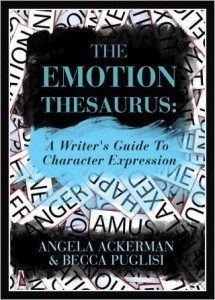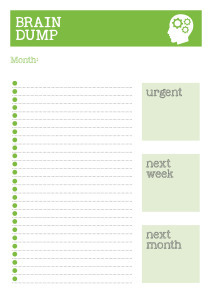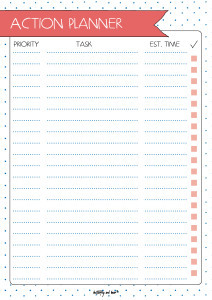Lana Pecherczyk's Blog, page 12
September 23, 2015
Weird Word Wednesday – Transoccupational
Lol. Batman. Yesss …
Transoccupational: When you relate more to an occupation not your own.
Eg … Batman isn’t a vigilante, he’s just transoccupational.
See it on Urban Dictionary
The post Weird Word Wednesday – Transoccupational appeared first on Author Zoo.

September 22, 2015
I got skills … they’re multiplying – Self-publishing skills, and where to learn them
And I’m losing control, ’cause the power, you’re supplying – it’s electrifying!
Hands up who remembers that song sung by Danny Zuko and Sandy from Grease? (You may have caught my words swap from the original – chills to skills but, hey, it’s all good.)
I feel like a word needs to be said about the many skills that a self-publisher learns over their journey. But the truth is, I really wanted to write this post so I could get the song lyrics out of my head. Just kidding.
Now, it’s not to say that all people who want to self-publish have to learn every single skill involved, but it is possible, and when you’ve learned something new, it feels amazing. So, this post is dedicated to all of those mult-talented people, and those who want to be. Below is a list of skills I think you can learn when you become a self-publisher.
Writer – Well, that’s a no brainer. If you want a little extra help in this department, check out The Ultimate Novel Planning Workbook.
Editor – Take a few quick refresher courses on how to look at your own work from an editors point of view. Have you discovered Udemy? There’s plenty of online courses here.
Marketer – Testing the market, or doing research as to whether which genre your writing fits in before you start is a good idea. I’ve learned the hard way that having something that doesn’t fit into a category is harder to sell. I would still write the story, but when you know your genre, you know who your audience are, what look and feel your book needs and where to advertise. If you want to learn more about marketing your book, take an author specific marketing course. Try the Author Marketing Club for an online solution.
Salesman – You know those door to door salesman? Well, the better you are at selling, the more books you will sell. I’m not fantastic at the face to face stuff, and I firmly believe against ambush selling, so I’m trying lots of different ways to get around this with my own works. If you want to get better at sales, check out this post on the Entrepreneur site
Designer – The inside and outside of your book are two different things. One, is more technical, the other, creative. If you want to learn more in designing a book cover, I recommend taking an Adobe Photoshop course. If you want to learn the inside of your book, I recommend learning InDesign. When you sign up to the cloud, the program comes with free tutorials and direction where to get more paid ones.
Blogger – Blogging is a craft all in itself. Some people think that to be effective, they just need to post some words every now and then. But this isn’t the case. Taking a short course on blogging for authors is a good idea if you’ve never done it before. Check out this free guide on Jane Friedman’s blog.
Professional Speaker – I haven’t gotten to this stage of the self-publishers life cycle yet, but one day I will. You may need to speak professionally to a group of other writers or to read passages from your book. Check out Toast Masters. They are a public speaking club with chapters all around the world.
Do you have any skills that you think should be added to this list? Please add your comment below.
The post I got skills … they’re multiplying – Self-publishing skills, and where to learn them appeared first on Author Zoo.

September 19, 2015
Shout out Sunday – Scrivener
Okay, so maybe you’ve heard about this – or not. Scrivener is a program written for writers specifically. Before you say anything, know this: I am a program snob. I love my mac. I’m a graphic designer, and more often that not, I head towards the really expensive options because so far, that’s what’s served me best. But when I came across Scrivener after a month of dastardly NaNoWriMo results, and couldn’t believe that software costing under a hundred dollars would affect my writing process so much.
Here are the things I like about Scrivener:
You can export directly to ebook with chapters, sections, covers and links.
You can keep all of your writing and your research notes, character notes, setting notes etch in one folder visible from your writing project screen
There is a split screen option so when you want to go back over some crazy intel you put in the first chapter but don’t want to lose the spot you are editing, it’s very handy
You can drag and drop character, setting and other research files to each new project.
Word count tracker and a tool that tells you which words are overused.
There’s much, much more to discover and there is also a workshop on how to use this program pretty much everywhere. If you are in Perth, where I am, here is a workshop by the prolific author Natasha Lester, just before NaNoWriMo.
What about you – do you have Scrivener? If you do, what do you like the most. If you don’t, what do you use?
The post Shout out Sunday – Scrivener appeared first on Author Zoo.

September 16, 2015
Weird Word Wednesday – Lip Boxing
This one cracks me up…
Lip boxing: Talking shit over social media (twitter,Instagram) or talking shit to somebody else without the person they are taking about knowing.
The post Weird Word Wednesday – Lip Boxing appeared first on Author Zoo.

September 13, 2015
Shout out Sunday – The Emotion Thesaurus
I’ve come across so many good authors and books about writing, that I thought I’d share them here in a regular post every Sunday. I’m not getting any benefits, these aren’t paid spots. They’re just books that have helped make my writing and publishing life easier. What’s the world without a little love, right?
This week, the book I’m focusing on is
The Emotion Thesaurus

A great resource to help you describe your character’s emotions
by Angela Ackerman and Becca Puglisi
Why I love it
It lists a wide variety of emotions and internal sensations and physical signs to go with them. Next time you’re stuck wondering how to ‘Show not Tell’ your emotion, you can flick through the thesaurus and get a few tips. For example, under Amazement, you have physical signs such as: Taking a step back, lips parting, a wide smile, squealing dramatically and more. This kind of quick reference is great if you are going to do NaNoWriMo.
I originally bought the ebook, but now prefer to use the paperback so I can have it next to my computer and ready to flick through at any time.
Visit the writers helping writers website here for more information.
The post Shout out Sunday – The Emotion Thesaurus appeared first on Author Zoo.

September 12, 2015
Shout out Sunday – Podcast City
For this week’s shout out, I’m actually doing a bunch all rolled in to one.
You can learn while you do other things like drive, walk or clean, and they’re free. It’s a great way to keep up your productivity whilst doing things that you absolutely must but prefer not to … like the dishes. What’s not to like?
For those of you that don’t know what a podcast is here is the definition: A digital audio file made available on the Internet for downloading to a computer or portable media player, typically available as a series, new installments of which can be received by subscribers automatically.
Basically, it’s like a free radio station that you listen to via iTunes. There’s an app you get called – surprise, surprise – Podcasts, and through it you can download or stream your favourite audio programs. You can learn languages, listen to reviews, storybooks, writing tips, sales tips … the list goes on. Below is a list of my favourite podcasts at the moment:
The Sell More Books Show
The Creative Penn
The Rocking Self-Publishing Podcast
Writing Excuses
So you want to be a writer
Dear Bitches, Smart Authors
Do you have any favourite podcasts you listen to? I’m eager to discover more. Please comment below.
About the Author
 Lana Pecherczyk Facebook Twitter
Lana Pecherczyk Facebook TwitterLana Pecherczyk is an author, artist and marketer from Perth, Western Australia. She makes a mean chocolate cake, is a fan of 'pro-caffeinating,' and plays make believe with her two little balls of energy (a.k.a. sons). She infuses her mash-ups of romance, fantasy, adventure and sometimes spooky horror with comedy because everyone loves a bit of fun in their lives, right? She also loves Sailormoon. No judgement.
Lana's latest novels are the Rom-Com Mystery, Robin Lockslay, and the Urban Fantasy, Hunting for Witches.
Hire me for Book Cover Design. Learn more about ...
Books | Blog | Hire
The post Shout out Sunday – Podcast City appeared first on Author Zoo.

September 10, 2015
P is for Promotion
As a self-publisher, you are in charge of drumming up business for your products. Here are a few ideas you can use to help spread the word about your novel.
PAID
One way of doing this is through paid promotion, or in another word, advertising. There are a few ways I have come across over time which I believe a worth while exploring.
Facebook – The benefits of running a Facebook campaign is that you can customise your keywords to specific ‘likes’ your ideal customer would have. For example, if you write horror stories and you believe your work is similar to Stephen King, you can add the like ‘Stephen King’. You can track click throughs, but you can’t track what happens on Amazon, Apple etc after they have left Facebook.
BookBub – You have to apply to get a Bookbub ad, and I haven’t done this yet. I’m waiting to write more in a particular series, so that if I offer the first for free, or at a discount, the reader will hopefully want to read on to the next in the series. You also need to have a certain amount of positive reviews to get this one across the line.
Freebooksy – Similar to Bookbub, but cheaper and there is no application. They take everyone as long as you pay
Netgally or Storycartel – a great place to get reviews on your book. You won’t actually get sales, but more positive reviews are better to sell more books.
Blog Tour – You have to pay for a blog tour, but if you get any actual book sales out of it, you’d be lucky. Once again, this is a good marketing tool to gain awareness of your novel, and to get people to sign up to your newsletter. The best way to find a blog tour company is to google the keywords ‘Blog Tour’ and your genre.
FREE
Social Media – This is a tricky one. If you already have a great lot of followers who are engaged with your books, then fine. But if you are just starting out, don’t expect much on this front. You don’t want to blast your only followers with nothing but sales, it can get tiresome.
E-Newsletter – Send out an email every time you have a sale, or release a new book.
Email Signature – Offer a free read, or link to your stories in your email signature.
Blogs – approach blogs yourself to see if you can get a review. Most often, you give your book for free in exchange for an honest review
Forums – Find forums where readers of your genre get together and discuss books. You have to be part of the conversation here, not just promoting your own novel.
Do you have any ideas that work?
About the Author
 Lana Pecherczyk Facebook Twitter
Lana Pecherczyk Facebook TwitterLana Pecherczyk is an author, artist and marketer from Perth, Western Australia. She makes a mean chocolate cake, is a fan of 'pro-caffeinating,' and plays make believe with her two little balls of energy (a.k.a. sons). She infuses her mash-ups of romance, fantasy, adventure and sometimes spooky horror with comedy because everyone loves a bit of fun in their lives, right? She also loves Sailormoon. No judgement.
Lana's latest novels are the Rom-Com Mystery, Robin Lockslay, and the Urban Fantasy, Hunting for Witches.
Hire me for Book Cover Design. Learn more about ...
Books | Blog | Hire
The post P is for Promotion appeared first on Author Zoo.

September 9, 2015
Weird Word Wednesday
Hashtalk: When Hashtags are spoken out loud.
The post Weird Word Wednesday appeared first on Author Zoo.

September 7, 2015
O is for Organisation – Self-Publishing from A to Z
(with free worksheets)
Succeeding in the self-publishing world seems to be all about organisation. I’m not that good and have tried my hardest to make myself better. Usually, the everyday writer has to not only fit in writing between their day job and life schedule, but also marketing, designing, networking, editing, online publishing, blogging and for some of you, plotting. That’s a lot of ‘ing‘ words. Well, here’s another one for you: overwhelming. It’s enough to make your head spin.
But – fear not! I’m going to use this post to pass on the special tips I’ve gathered along the way that help me make the most of my time. For those of you struggling to see the light through the trees, try this 6 step ‘ing’ plan to getting yourself organised.
Appraising

Click to download this free printable brain dump worksheet.
– The first thing you need to do is to work out how much free time you have.
– Use this free printable month-at-a-glance calendar, or this daily action planner to plot out the times you are busy, and the times you are free. Highlight the times you are free, and how many hours you have to spare. You need to include everything you do, from eating breakfast, to watching TV, to getting the kids to school. I’ve actually bought a day to a page diary, but also use my month-at-a-glance printables to give myself an overall view for planning.
– You don’t have to keep up this level of planning, it’s just a good way to work out your over all routine availability and whether something’s gotta give.
Brainstorming
– Fill out your brain dump worksheet with all the things you need to do.
– Then rank them from the most important to the least important.
– Work out how many hours a week you need to be spending on these. Don’t fill them into your calendar yet.
– From these items, write out some SMART goals (Specific, Measured, Achievable, Result-focused, Timely). For example: I want to write my first draft of a 60,000 novel by February 2016. For this goal, you’d be focusing on word count to measure your success by the time frame specified.
Writing
Click to download this free month to a page writing planner
– Do you have a publishing schedule? If not, write a dream one and a conservative one for the following 12 months. Here is author, Elle Casey’s, publishing schedule. She writes super fast, so don’t feel like you have to do what she does, but it can help you aspire to do more.
– Give yourself deadlines for each project.
– Work out when and what you need done by certain times of the year.
– Include things like: word count goals, plotting, writing first draft, editing, beta readers/feedback, and final edit.
Designing
– Based on your writing schedule, work out when you need things like: cover design, formatting, interior book design etc done by.
– Work backwards from your deadline and try to give each task an hourly time frame.
Marketing
– Based on your publishing schedule, work out when you need to start promoting your new book and for how long.
– Do you need to include advertising, blog tours, blog posts, social media blasts etc?
Planning
Click to download this free daily action planner
– Have a look at how many hours a week you have free versus how many you need to satisfy your goals.
– Do you have to wake up early a few days a week to meet your goals? Or can you sacrifice your TV show for the month? Do your original priorities still fit?
– Look over your notes and highlight your deadlines, ideal schedules and word count goals.
– Fill in your time into your calendar, even if you break it down to: Get up at 5am, get 2000 words written by 7am. Go to work. After kids go to bed, do some editing for one hour followed by marketing.
– It’s up to you how specific you want to get, but don’t forget your SMART goals. Maybe even write them on a sticky note, and place them around the house to remind yourself of your deadlines.
– Don’t forget the most important ‘ing’ word of all: Forgiving. If life gets in the way, adjust accordingly.
There you go, a 6 step plan to organising yourself for self-publishing. If you liked these printables, I’ve created a whole lot of them at my etsy store. You can visit it here.
About the Author
 Lana Pecherczyk Facebook Twitter
Lana Pecherczyk Facebook TwitterLana Pecherczyk is an author, artist and marketer from Perth, Western Australia. She makes a mean chocolate cake, is a fan of 'pro-caffeinating,' and plays make believe with her two little balls of energy (a.k.a. sons). She infuses her mash-ups of romance, fantasy, adventure and sometimes spooky horror with comedy because everyone loves a bit of fun in their lives, right? She also loves Sailormoon. No judgement.
Lana's latest novels are the Rom-Com Mystery, Robin Lockslay, and the Urban Fantasy, Hunting for Witches.
Hire me for Book Cover Design. Learn more about ...
Books | Blog | Hire
The post O is for Organisation – Self-Publishing from A to Z appeared first on Author Zoo.

September 4, 2015
How to stay positive in an industry that wants to cut you down
If only you could create for arts sake.
While I was a child, I created art because it helped me get through a tough time, and I loved it. I honestly loved it. There was nothing better than hiding in my room after a long day and pouring my hopes, anguishes and dreams onto paper. I created worlds with a pen, and traveled to far off lands of my own making. Now, as an adult, I have responsibilities and can no longer afford (literally) to keep my work hidden.
At first I thought, why not? People tell me I’m talented, people love my work, I’m going to give it a go. Some people will love it. They’ll love it so much that they’ll go out of their way to tell you. But the reality is that not everyone will love your work, in fact, some people will hate it.
What I didn’t understand about breaking out of my solitary hovel was that I entered an industry where it’s people’s jobs to tear you down, or lift you up. By putting your work out there to sell, you’re asking people’s opinions, you’re asking for a review. Even if you don’t want to hear them, you’re asking the consumer: Do you like this enough to buy it?
If you want to be a writer, you need to understand this. It’s hard. Not just learning how to write well, but learning how to deal with constant criticism, and on the flip side, praise. I’m in no way saying that I struggle from too much praise, lol. I’m just saying I understand how in the spectrum of writerdom, and in fact every creative industry, it’s hard. I guess that’s why many famous writers were classic recluses. J.D Salinger, for example, famously became a recluse after the lime light was too much.
So, how do you strike the balance that keeps you sane, motivated and learning? For me, it’s a work in progress. But here are a few tips I try to keep in mind when having a downward swing in the self-worth category.
Realise that you are among the few out there actually creating something. Making something from nothing, not tearing things down. How many others can say they do this?
Go for a walk. Exercise releases endorphins that make you feel positive, like morphine. It makes you feel better, helps you meditate on problems and forget them if necessary.
Try not to read reviews until after you have finished a project. I find if I read stuff whilst creating, I get stuck in a slump. Sometimes for no reason at all.
Get some like-minded friends. Network, join a club, join a writing group. These people are suffering and celebrating in the same way. Talking about it helps.
At the end of the day, go with your gut. It’s you creating the art, after all. You need to stand by your initial goals and if nobody likes it, well, at least you did. Move on to something else next time and know that you did your best.
Think about this quote by Charles R. Swindoll: “I am convinced that life is 10% what happens to me and 90% how I react to it. And so it is with you…we are in charge of our attitudes.”
Write more. There’s always going to be haters and people who aren’t screaming your praise, so just keep writing. The more you put out there, the less you worry about that one that got away.
Use a pen name. If you’re really scared, use a pen name. The only thing here is that at some point, if you want to promote yourself you will have to go public with the link between the real you and fake name.
Learn from it. You’ve heard the phrase: Turn that frown upside down. Find something positive in the negative. Often there is a lesson, whether it’s feedback on your writing, marketing, or process. There should be something. I learned that I can’t read reviews while I’m in the middle of writing. Editing, sure, but writing the first draft? Nuh-uh.
When all else fails, grab a tub of Black Forrest ice cream and binge watch Netflix until you fall asleep and wake up feeling better.
So, there you go. I hear you writers and specifically self-publishers. It’s a tough, tough gig. But I’m not settling for mediocre. I’ll get there one day, and hope you will too.
Talk to me: Do you have any ways you handle the downward swings of the creative industry? Please share and comment below.
About the Author
 Lana Pecherczyk Facebook Twitter
Lana Pecherczyk Facebook TwitterLana Pecherczyk is an author, artist and marketer from Perth, Western Australia. She makes a mean chocolate cake, is a fan of 'pro-caffeinating,' and plays make believe with her two little balls of energy (a.k.a. sons). She infuses her mash-ups of romance, fantasy, adventure and sometimes spooky horror with comedy because everyone loves a bit of fun in their lives, right? She also loves Sailormoon. No judgement.
Lana's latest novels are the Rom-Com Mystery, Robin Lockslay, and the Urban Fantasy, Hunting for Witches.
Hire me for Book Cover Design. Learn more about ...
Books | Blog | Hire
The post How to stay positive in an industry that wants to cut you down appeared first on Author Zoo.




